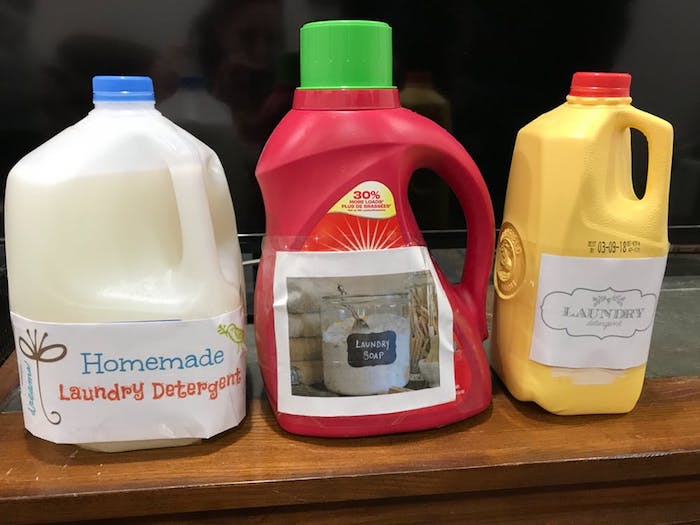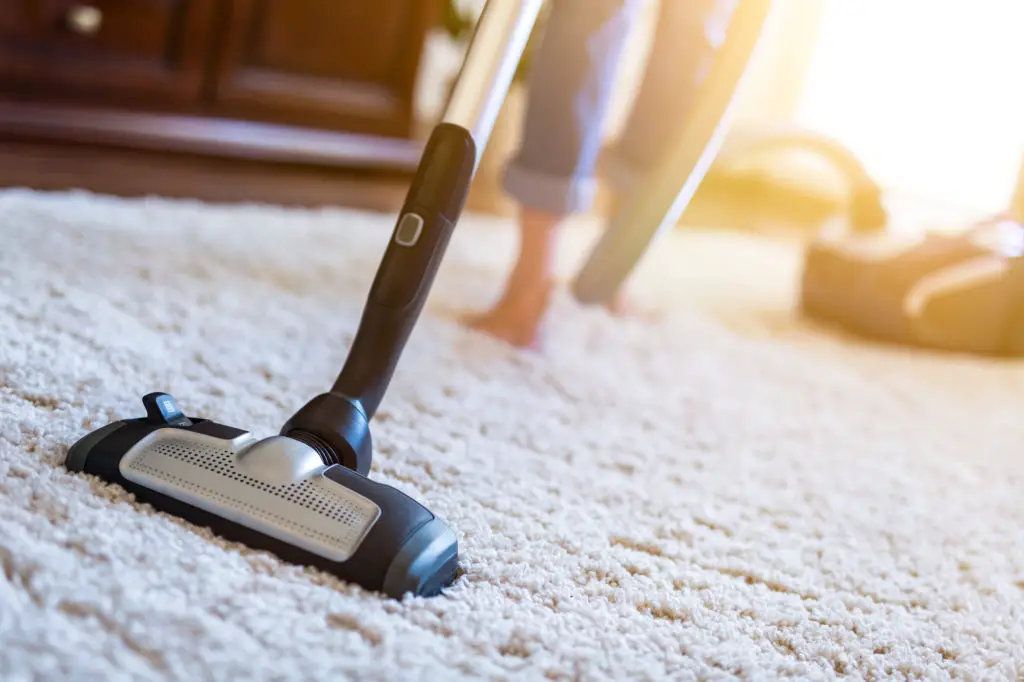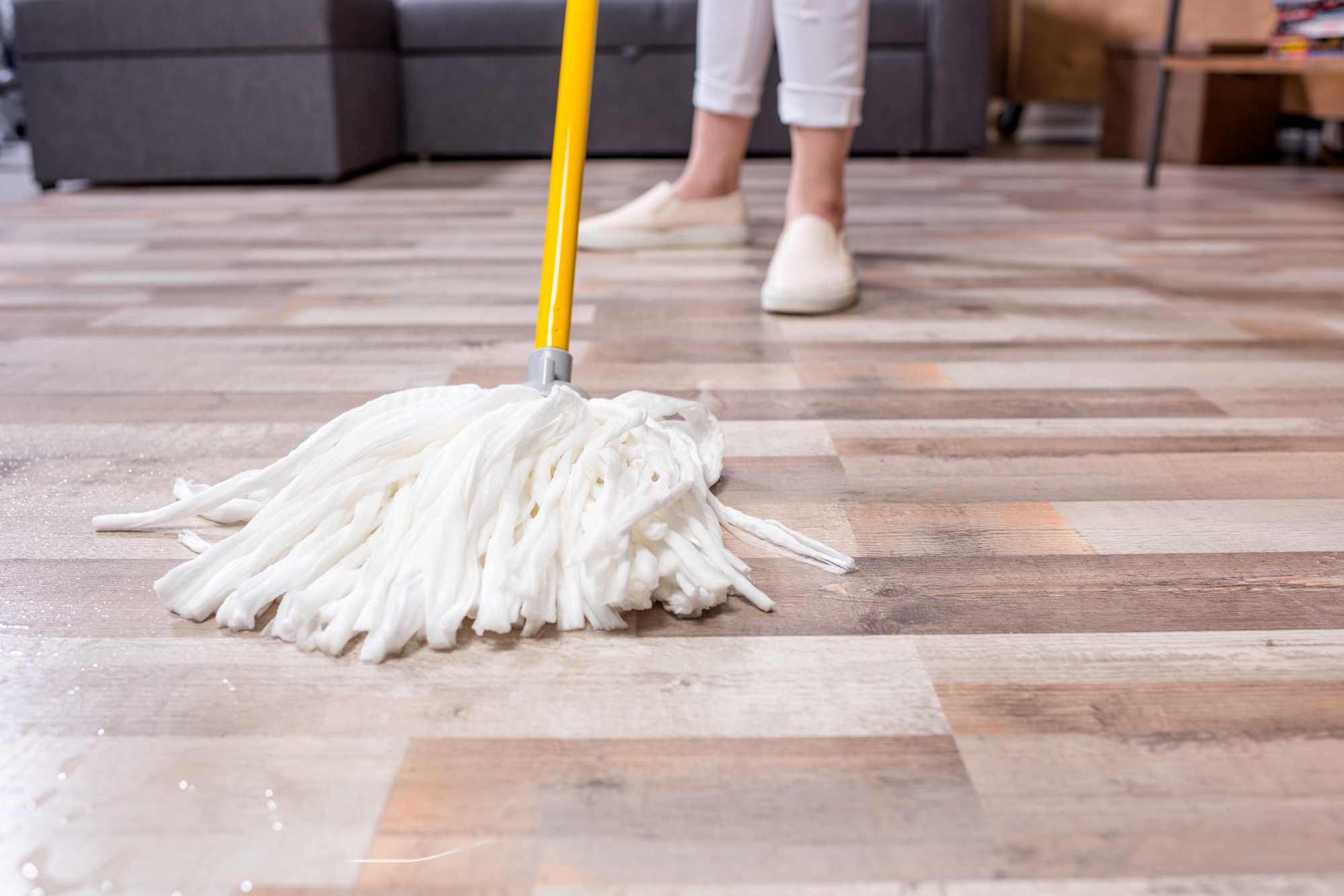You just spent the better part of the day preparing an incredible meal. Your sink is now full of dirty utensils—pans, pots, and plates—but you know how it is with dishwashing. Nobody ever likes to do it. Once you have composed yourself and are ready to do it, though you may only then realize you have run out of dishwashing detergent!
In a case like this, can you substitute dishwashing detergent with laundry detergent? Although you hypothetically could do so, it’s best to avoid washing your dishes using laundry detergent due to the use of laundry-specific chemicals that may be potentially harmful when used in a dishwasher or on utensils that come into contact with our food and mouths. However, you still have some alternatives available for when you find yourself without dish-appropriate cleaning supplies.
Overall, I would suggest you still wait on cleaning, if needed, and only use dishwashing detergent to wash your dishes. Read on to find out more on the differences between dishwashing detergent and laundry detergent, why exactly laundry detergents are not good for dishwashing purposes, and the best alternatives for dishwashing detergents.
What Could Happen If You Use Laundry Detergent to Wash the Dishes?
Although it may be possible to use laundry detergent for cleaning your dishes, you should be aware of the potential consequences of doing so before trying. Using laundry detergent is not ideal for this purpose, but there are many folks who will still wonder what the harm could be in such a scenario.
- First, if you are using a dishwasher (see my reviews), you will likely void the warranty if you use a product not meant for use within the appliance—in this case, laundry detergent.
- Secondly, the chemicals found in laundry detergents (such as stain removers, fragrances, and brighteners) can become gases when heated in the dishwasher. These can be toxic when inhaled.
- While it is possible to avoid the release of such fumes by washing the dishes manually in the sink, the laundry soap will likely not rinse off completely, and it can end up leaving an undesired residue on your dishes.
- Lastly, another reason why you should not use laundry detergent for dishes is that it contains fragrances and UV brighteners, both of which are not suitable for dishwashing purposes. The fragrances commonly contain synthetic ingredients that are long-lasting and hard to wash off. They are intended to keep your clothes smelling fresh for long periods of time and are intended to stick well to clothing. Surely, you do not want such chemicals stuck on your utensils as well, do you?
If you are absolutely desperate for a way to clean your dishes when out of proper dishwashing soap, you could instead try to use other types of detergent or soap such as liquid hand soap, bar soap, or even wood ash. However, be sure to clean your dishes with these manually in the sink so that you can rinse them off thoroughly.
How Is a Dishwashing Detergent Different From a Laundry Detergent?
First, let’s look at the similarities. The two are quite similar in the fact that they both use surfactants in their functioning. Surfactants are chemicals that basically just allow dirt and grease to bind more easily to water molecules, making trapping dirt and gunk far easier and allowing you to simply wash it down the drain.
They are somewhat interchangeable due to this. However, neither will be as effective for their intended purposes because dishes and clothing have different cleaning requirements. Thus, the chosen cleaning product should meet those requirements to yield the most effective results.
Below are the notable differences between laundry detergent and dishwashing detergent, explaining why they are generally not ideal for substitution in place of each other.
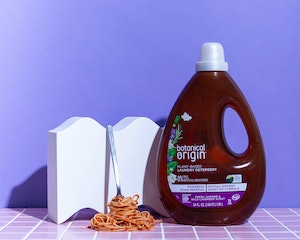
- The first notable difference is seen in the kinds of surfactant used. Typically, dishwashing liquids contain sodium lauryl sulfates, and laundry detergents commonly contain alkyl benzene sulfonates. Sodium lauryl sulfates are known to produce more foaming action, one of the qualities of a good detergent. This is ideal for dishwashing, which primarily calls for far more “trapping” action of the grease and oil molecules used in cooking and commonly left behind on cooking utensils.
- Laundry detergents also have added enzymes meant to handle various types of stains and soil that may have found their way deep into the fibers of one’s clothes. Those enzymes are not included in dishwashing detergents because you don’t have such stains functioning in the same manner on dish and utensil surfaces compared to porous cloth surfaces.
- In addition, laundry detergents also commonly have specific perfumes meant to make the clothes smell good and stay fresh for longer. However, the chemicals used in such fragrances are not safe for human consumption, and using such on your dishes could make you sick as well as make your meals taste quite unpleasant.
- Laundry detergents also come with added benefits such as softeners and whitening agents like bleach. Although bleach may be great for many cleaning purposes, softeners are not something you want on your dishes and kitchen utensils.
- Lastly, dishwashing detergents are less reactive chemically compared to the laundry detergents.
Basically, all detergents—whether for hair, clothes, dishes, or the body—work using the same principles: breaking and washing away oils and dirt. However, each of the different products are formulated and intended for specific items and purposes, and they should not be used interchangeably for the sake of both effectiveness and safety.
If You’re Out of Dish Soap, What Alternatives Do You Have?
Now that we have ruled out using laundry detergent as an option for dishwashing purposes, we now need to figure out what can work as a safe substitute in the event that you run out of dish soap. Here are some recommendations to help you solve your kitchen dilemma.
Also, note that the suggestions below are not meant for use in a dishwasher because they may void the appliance’s warranty. Additionally, it’s best if you do the cleaning by hand in the sink as well so you can rinse your dishes thoroughly to ensure no residue is left behind.
Hand soap
Most hand soaps are in the form of detergents with antifungal and antibacterial ingredients that can sanitize and clean your hands, and these can also work well on your dishes, too. Liquid hand soap is often milder than your normal dish soap, and it dissolves and foams better in hot water. Given that it contains more glycerin, it is bound to be gentler on your skin if you are doing the dishes manually, so this is an added plus to using it as a substitute.
However, you still must exercise some caution because many hand soaps contain additives that may not be food-safe. Thus, you’ll need to take your time when rinsing the dishes off to ensure that you do so thoroughly. The additives may be mild, but be sure to rinse several times to prevent buildup regardless.
Bar soap
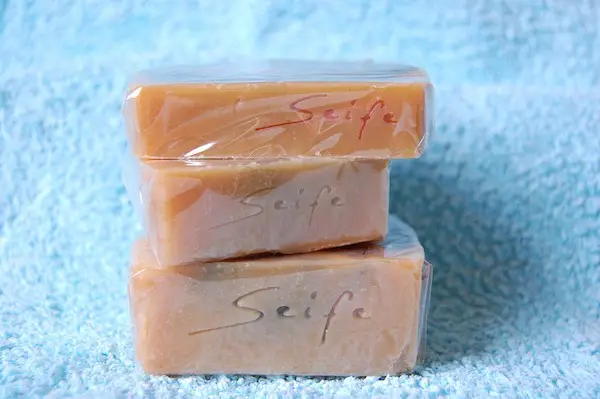
If you are wondering whether you can wash the dishes with bar soap, the answer is yes. What do you think people used before the invention of liquid detergents? Bar soap for sensitive skin—without any added scents—is a safe choice when you do not have any alternatives. Bar soap may not be as effective as dish soap, but it is still quite safe (depending upon the brand and ingredients).
The main problem with this option is that it will very often leave a residue on the dishes. Again, to solve this, you’ll just have to rinse your dishes several times with a lot of hot water to ensure it’s all clear before letting your utensils dry. It may not be the best option if you have a lot of dishes to clean, but the bottom line is that it will still save the day if you did not have any dish soap left at all.
Rice water
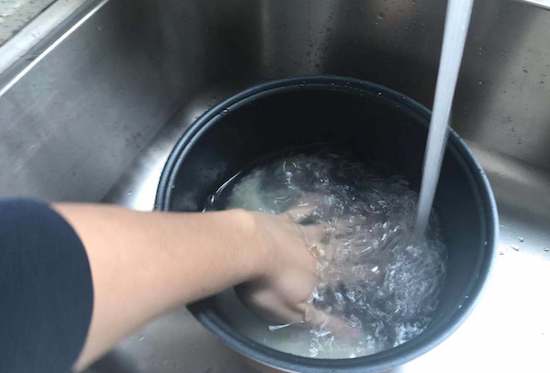
Another option you may want to try is using rice water to clean your dishes if you’re all out of dish detergent. This commonly overlooked leftover water is great when used as an abrasive, making it perfect for scrubbing stuck-on gunk off of your messy post-dinner dishes. Its acidic nature also helps cut through mineral deposits and other similar substances, so it’s multi-purpose and a naturally effective way to get things clean. However, due to its acidity, rice water may not be the best for cleaning grease and oils off of your dishes, so you want to resort to another option if the meal you cooked was quite greasy.
Hot water
At the end of the day, sometimes you just can’t go wrong with using plain hot water. People have used boiling water for sanitizing purposes for centuries, and it’s still just as effective now. Although it may be harder to manually clean your dishes in such temperatures, giving them a good soak in the hottest water possible will help sanitize your utensils as well as break up some of the leftover food on your plates and forks. After this soaking period, give your dishes a good scrub in the hottest water you can physically stand, and they should be nearly like new!
Wood ash

Lastly, an unexpected cleaning alternative to dish soap is the use of wood ash. It’s recommended that you mix in leftover wood ash with some of your dishwashing detergent for maximized benefits, so this is great when you may have a tiny bit of soap left but not enough to do an entire load of dishes with it. Wood ash is surprisingly effective as both an abrasive and a substance for effectively removing anything sticky or adhesive in nature.
Can You Wash the Dishes Without Using Soap at All?
It is entirely possible to wash dishes without soap, especially without the dish soap that most people are so accustomed to using. Dish soap is a modern invention, and liquid dish soap is an even more recent variation. Nevertheless, even before these two cleaners were available, people still washed their dishes.
To clean your dishes without using soap at all, the only ingredients that you will need are baking soda, vinegar, and water. Baking soda (see different uses) absorbs grease, and once it mixes with water, it makes a paste that can help scrub and remove food debris quite effectively.
Here is a detailed guide on how to go about using it for dishwashing purposes:
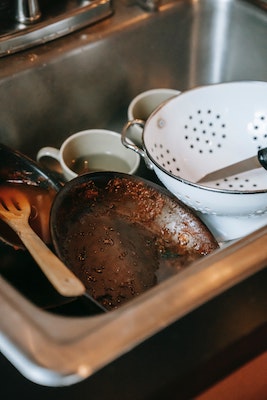
- Remove all of the dirty dishes from the sink. (The sink is not a storage unit!) Wipe the sink properly and rinse it with hot, boiling water. It needs to be very clean because you are going to be washing your utensils in it.
- If you do not have a double sink, you will need at least two or three separate washbasins. Since you are going to use hot water, you will also need a pair of gloves so that you do not burn your hands.
- Sort your dishes based on the level of dirt and gunk stuck onto them. Usually, most people start with their glasses, then their plates, bowls, and finally their pots. Put all cutlery in a separate basin, sprinkle one spoon of baking powder into the container, and cover them with hot boiling water.
- For any pans and pots that require some scrubbing, put water and baking soda inside of them, and leave them to soak.
- Now, put one tablespoon of baking soda and hot water in one of your basins or in one compartment of the sink. In the other basin or sink compartment, put one tablespoon of vinegar and add hot water to this, too. If the water is too hot to touch even with gloves on, you can add a little bit of cold water until it is bearable. However, in essence, the water should be as hot as possible.
- Take one dish at a time, washing it thoroughly in the water with baking soda and rinsing it in the second basin. Place it to dry on a wooden rack. Do not stack a whole bunch of dishes all at once, though. Also, be sure not wipe with a dish rag or other piece of cloth. Let them dry naturally in the air. As an added bonus, this will not be a problem nor take very long because hot water dries up quickly.
- When finished with cleaning your main dishes, you can then rinse off the cutlery in the same manner.
Just as simple as that, you have managed to wash your dishes without dish soap or any other kind of soap for that matter. Just be sure always to clean your dishes immediately after use to avoid a piled up mess. In addition, do not forget to use hot boiling water to get rid of dirt easily.
Related Questions
Is hand washing dishes as effective as a dishwasher?
Handwashing dishes does an acceptable job, but to kill most bacteria on the dishes, you need 140°F temperatures when cleaning your pots, plates, and cutlery. This is only achievable through a dishwasher.
What are the health hazards of using laundry detergents for dishwashing?
Laundry detergents contain brighteners, fragrances, and other clothing-related chemicals that are not recommended for use as dish soap. As mentioned above, these non-dish-safe chemicals can lead to a number of health issues and undesirable chemical reactions that you certainly don’t want taking place on the surfaces off of which you eat your meals.
See Also:
How To Clean Steel Wool? + What Not To Do
5 Ways On How To Remove Lint Balls From Bed Sheets
Can You Use Dishwasher Pods For Laundry
Is Laundry Detergent Bad For Your Hands
Can You Use Laundry Detergent To Wash A Car
